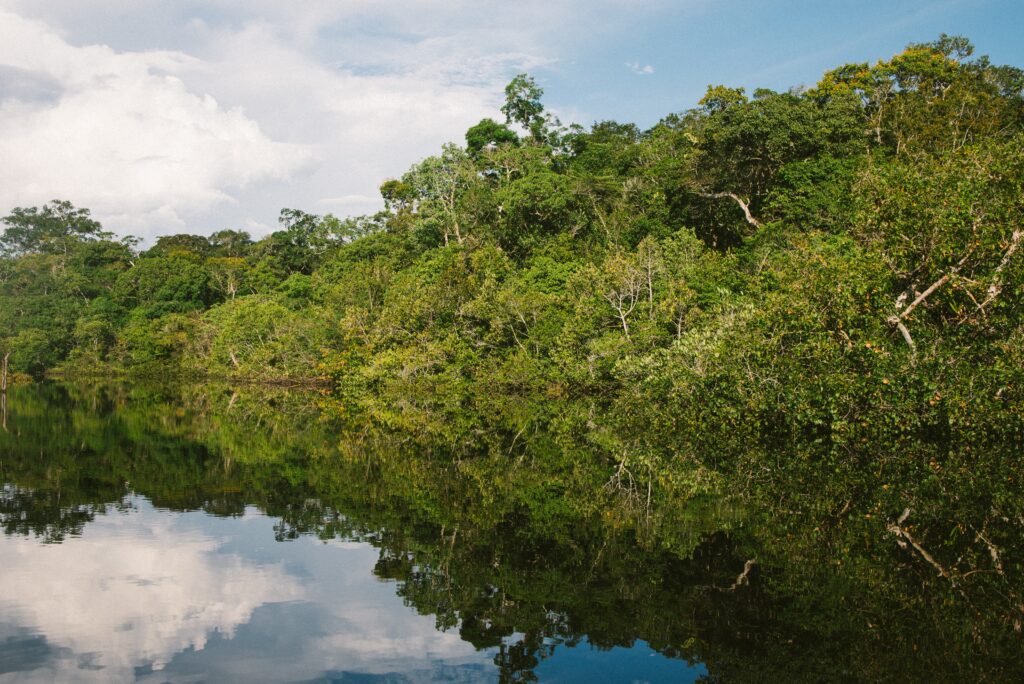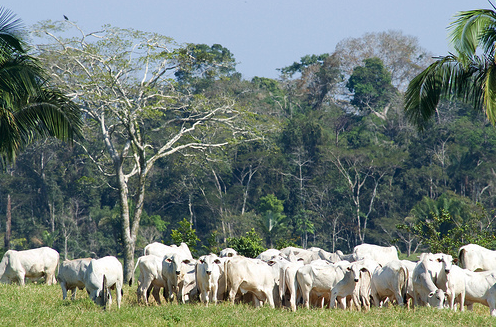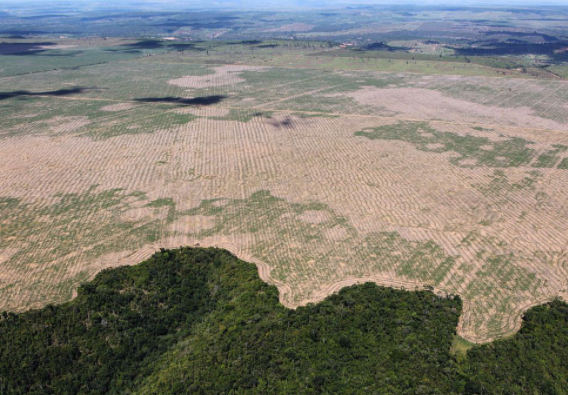As domestic conservation prospects for the Amazon rainforest grow dim, the international community must address Brazil’s most damaging industry.

The deforestation of the Amazon rainforest has been a prevalent topic among conservation policy and advocacy groups since the 1970s. Brazil, home to 60% of the Amazon’s 2.6 million square miles of rainforest, has always the focus of conservation efforts. For decades, the catastrophic deforestation of Brazil’s rainforest seemed inevitable. Perspectives began to change in the early 2010s when deforestation rates in Brazil began to decrease drastically, with a 70% decline in the annual rate by 2012 compared to 2005 rates.
This decline in deforestation has been tied directly to the successful implementation and enforcement of new policies and interventions in Brazil’s soy and beef supply chains. But protecting the Amazon is a continual process, a process that Brazil’s President Bolsonaro has systematically dismantled since he took office in January 2019.
Starting early in his term, Bolsonaro has promoted the expansion of industrial projects in the Amazon, worked to overturn environmental laws, limited funding to Brazil’s environmental protection agency, and made efforts to dismantle the system of protections and land rights afforded to Indigenous communities by Brazil’s Constitution. In conglomerate, these measures have resulted in the accelerated deforestation of the Amazon, with the 2020 deforestation rate coming in at nearly 2.5 times that of 2012. Bolsonaro’s actions have not only given legal avenues for industry to cut down larger swaths of the Amazon, but his administration’s inaction on policing protected forests has resulted in increasing illegal land seizures and deforestation.

Though an array of farming and industrial activities has contributed to the deforestation of the Amazon rainforest in Brazil, the country’s growing beef industry has long been the leading driver of deforestation, both legal and illegal. Brazil is the world’s largest exporter of beef products, exporting a reported a record-setting 2.02 million metric tons in 2020. The reported revenue from this trade is $8.4 billion. While both the domestic and export markets for Brazil’s beef are an important part of the Brazilian economy, the industry has come at a steep price for the country’s vital rainforest, the loss of which has wider ramifications for both the regional and global climate, as well as biodiversity.
Data released in 2019 by Trase, a deforestation and commodities monitoring platform, shows how damaging the demand for beef has been for the deforestation of the Amazon rainforest. Every year an estimated 260,000 to 580,000 hectares of the Amazon rainforest is cleared due to expanding cattle ranching. From 1988 to 2014, 63% of the area deforested in Brazil became cattle pastureland. Between the forest loss and the gasses emitted from the cattle during digestion, Brazil’s beef industry is responsible for around half of the country’s greenhouse emissions.
According to Trase, over two-thirds of the country’s cattle-related deforestation risk comes from Brazil’s top three beef exporters, JBS, Minerva, and Marfrig. Separate investigations by the NGOs Amnesty International and Global Witness have linked all three companies to cattle ranches where illegal deforestation has occurred. According to a 2020 study, it is estimated that least 17% of Brazilian beef exports are linked to illegal deforestation due to improper monitoring of beef supply chains.
Brazil’s beef industry is not only disastrous for the Amazon rainforest and global decarbonization efforts, but it has also limited Brazil’s economic potential. Many rural farmers operating in the Amazon have continued to ranch cattle, even though they could make more money – and protect the Amazon from further degradation – by growing acai or oranges. However, social preferences and lagging supply chain infrastructure in Brazil’s rural regions has kept industry tied to low-income and highly environmentally damaging cattle farming.

What can be done?
Although previous evidence indicates that domestic policy and enforcement can go far in decreasing the beef industry’s impact on deforestation, the Bolsonaro administration is unlikely to adopt the measures necessary to do so. In the continued absence of domestic action against deforestation in Brazil, there are steps individuals, businesses, investors, and other states’ policymakers can take to protect the Amazon and disincentivize illegal deforestation related to cattle farming.
One of the best ways to protect the Brazilian rainforest is to decrease demand for Brazilian beef. Both individuals and companies should work to either cut their purchase of Brazilian beef, or else more carefully monitor the supply chain of the Brazilian companies they do purchase from. Both should avoid beef exported by JBS, Minerva, or Marfrig until these companies take more credible commitments to eliminate all links to illegal deforestation. Decreasing the consumption of beef from Brazil will also decrease deforestation caused by another major industry contributing to the deforestation of the Amazon – soy farming. Much of the soy farmed in Brazil is used to make cheap protein-rich feed for cows. If less beef is consumed, fewer cattle will be farmed, and less rainforest will be cutdown for soy farms.
Another powerful tool to influence change could be through trade sanctions. Much of the illegal deforestation in the Amazon is a result of the absence of punitive measures under Bolsonaro’s administration. If Brazil’s major beef importers set trade barriers and restrictions on Brazilian beef exporters tied to illegal cattle farms, they could fill this gap, changing the incentives of Brazil’s rural farmers.
Investors can help conservation efforts by investing in the processing, storage, and marketing infrastructure necessary to move Brazil’s agriculture industry away from the low-income and environmentally damaging cattle farming to more sustainable and profitable agricultural industries.
Rachel Gossett
